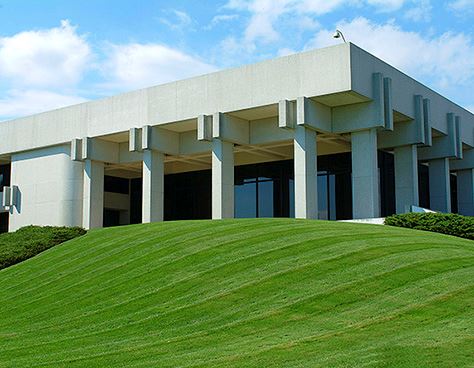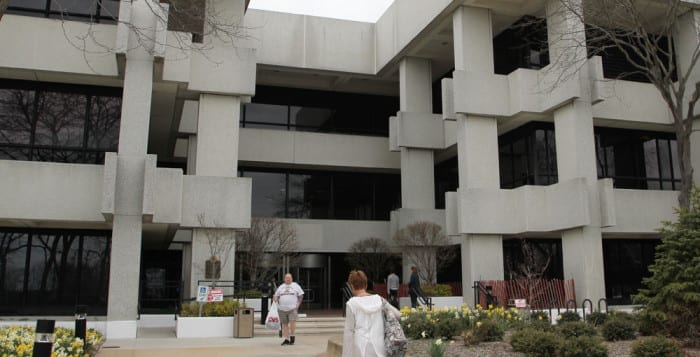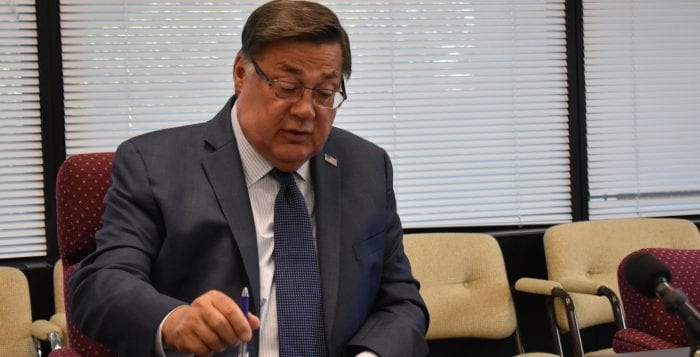By Samantha Rutt
Brookhaven Town Board held a public hearing on Thursday, Nov. 9, to consider the 2024-2028 Preliminary Capital Budget, exclusive of special districts.
The Preliminary Capital Budget is a plan for capital expenditures, which are projects expected to have a useful life of more than one year. The budget includes projects such as road repairs, parks improvements, building renovations and landfill expansion.
The town’s commissioner of finance, Tamara Branson, opened the hearing by presenting highlights of the 2024 preliminary operating budget. The total appropriations for the operating budget amount to just over $335 million. This represents an increase in spending of 1.6%, with a rise in the town property tax levy of about 1%.
In her presentation, Branson noted the preliminary budget will use no fund balance to balance the budget in the seven major tax districts. Outgoing town Supervisor Ed Romaine (R) — who is leaving office later this year to become Suffolk County executive — praised the budget.
“No fund balance has been used,” he said. “It’s all structurally balanced,” adding, “I think that’s important because some people lose that. Sometimes, you see towns using the fund balance or the reserves to balance a budget. We have not done that for years.”
The finance commissioner mentioned that the preliminary budget complies with New York State’s 2% levy cap, the town’s Tax Rate and Debt Management Cap and all fund balance policies adopted by the Town Board.
Branson’s presentation also noted no reduction in constituent services or total full-time staffing. The presentation further pointed out that the preliminary budget would lower property taxes across the nine ambulance districts by a combined 4.6%.
In the preliminary operating budget townwide summary, Branson noted the tax levy to be almost $195 million. Contrarily, to help balance the budget, the non-property tax revenues will equate to $140 million. To this, the finance commissioner commented on the work of the town Finance Department to help stabilize the budget.
“This is the area we have all been working on for the past decade,” Branson said. “To grow the non-property tax revenues.”
Romaine emphasized the importance of generating revenue from other sources, such as renewable energy.
“We want to encourage revenues from other sources, like solar,” he noted. “The more we grow non-property tax revenue, the less people have to pay — or the less we have to raise property taxes.”
Property taxes hold the most significant of the six major budget funds, supporting 54.5% of the total revenues. Second to property taxes, the town’s landfill, recycling and sustainability management contribute 22.3%. Building, fire prevention, and planning/environmental comprise the next biggest portion at 12.7%. The remainder of the total revenue includes parks, franchises, mortgage tax and state aid.
The preliminary budget’s planned expenditures are dedicated to employee compensation, employee benefits, contractual and equipment, and debt service. Romaine commented on the reduction of debt service, noting that the percentage of the town’s expenditures on debt service has decreased by 5% in the last decade.
The budget will feature new bond and reserve-funded projects totaling $47.9 million. Most of this sum will be allocated to highway development and improvement, focusing on roads, drainage, traffic safety, and updated machinery and equipment.
The remaining funds will support other projects such as parks and recreation facilities and equipment, open space preservation, public safety, planning and environmental, and landfill infrastructure improvements.
According to Romaine’s report of Sept. 29, the operating budget “reduces landfill revenues to reflect loss of volumes in 2023” and “grows the Landfill Post-Closure Reserve by $1 million to an anticipated $26 million.”
“I think this is a good budget,” the departing town supervisor indicated. “It is a very stable budget. It holds taxes very low — far below the rate of inflation — and allows us to move forward into the future.”
The board will consider the 2024-2028 Preliminary Capital Budget, exclusive of all special districts, during a public meeting on Thursday, Nov. 16.
To view the full hearing, please visit brookhavenny.gov/meetings.







